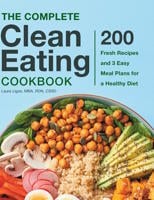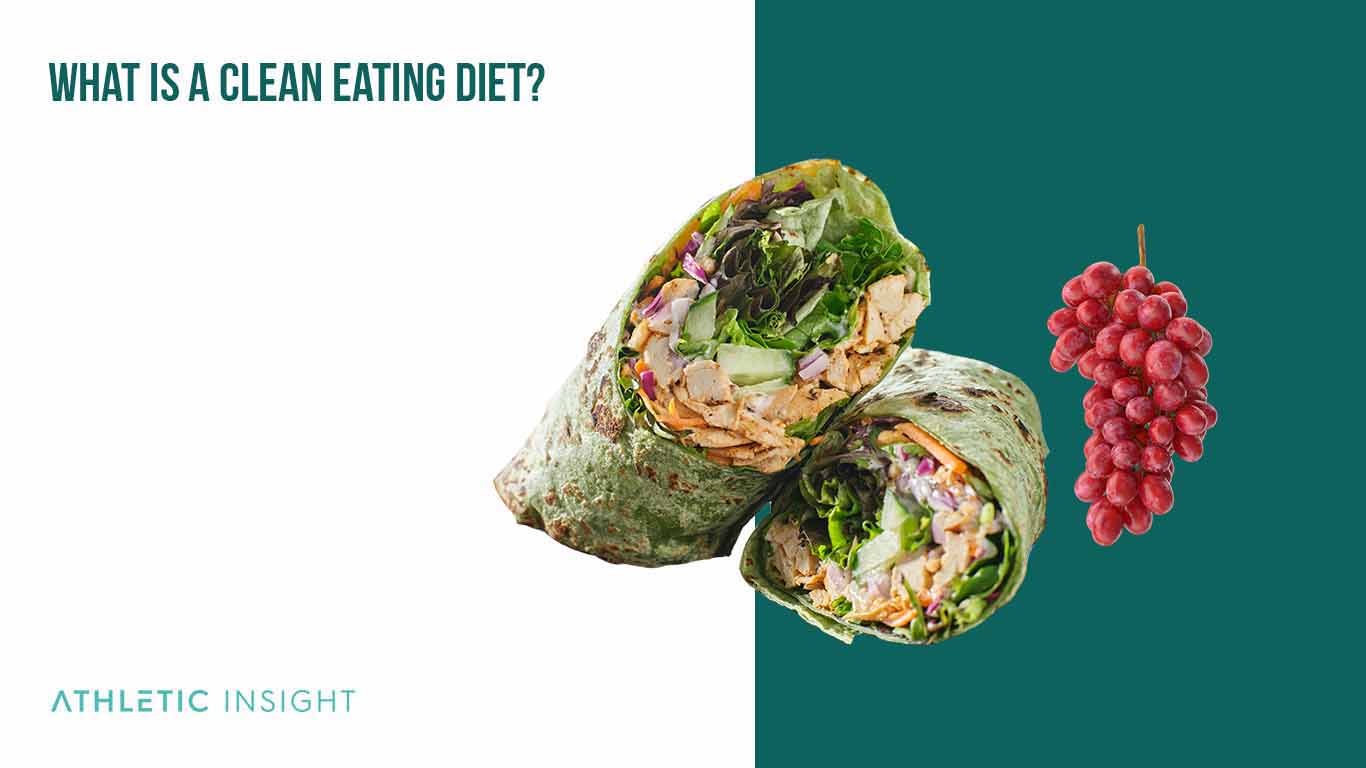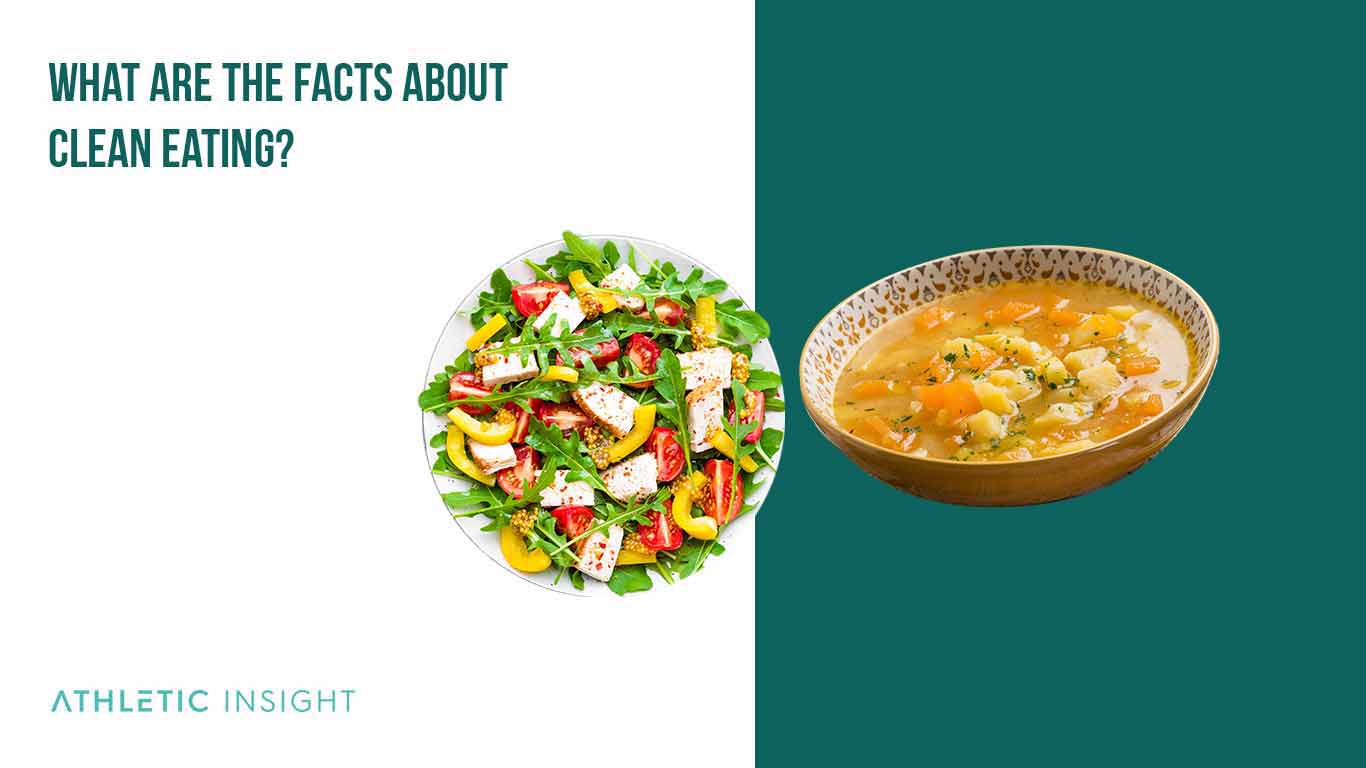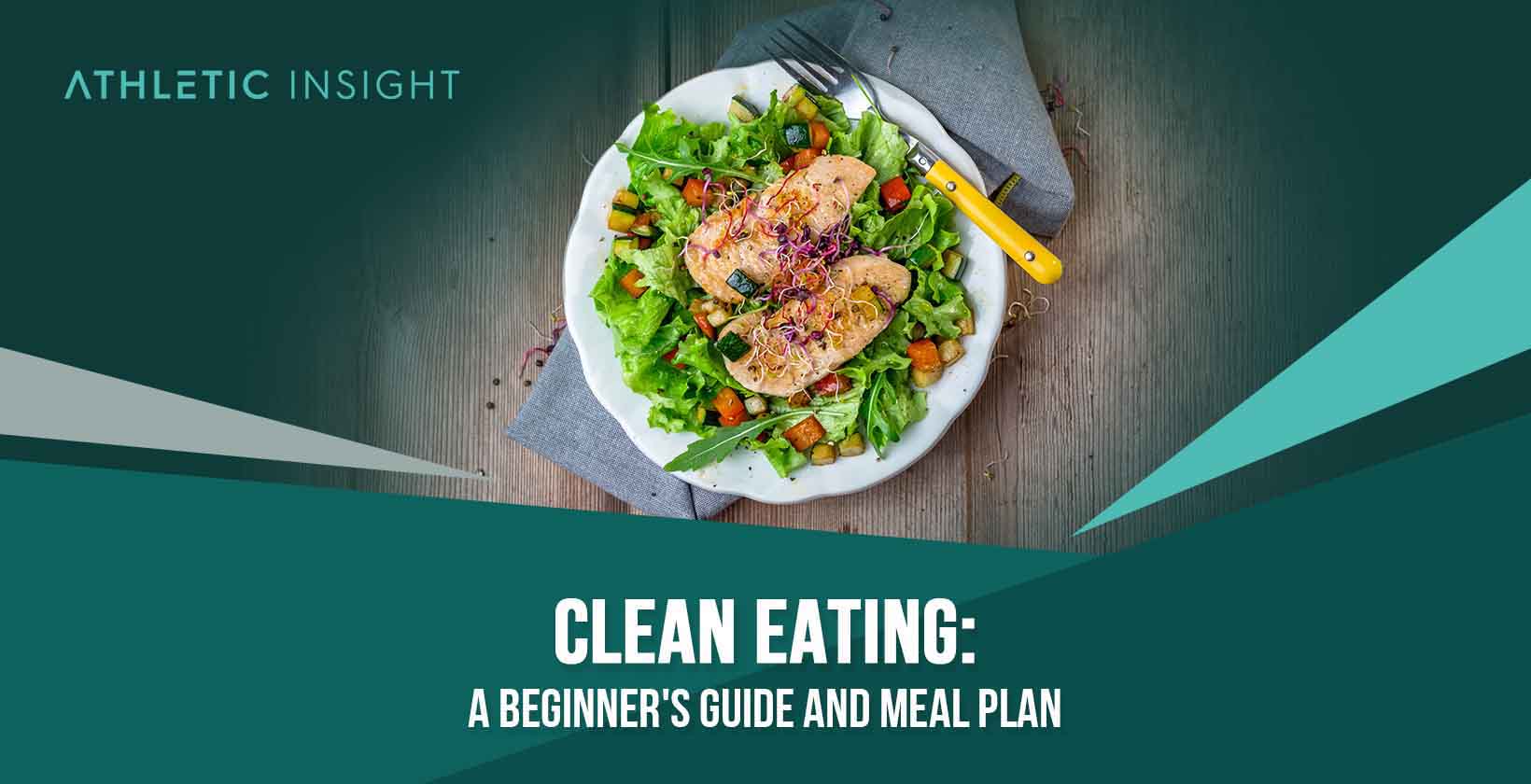Clean Eating is one of the most popular diets today but also one of the most confusing. This article will help you break down what clean Eating is and provide a simple guide and meal plan to implement in your own life.
Clean Eating is about choosing whole foods as close to their natural state. Eating foods in their natural states means avoiding processed foods and eating more fruits, vegetables, whole grains, legumes, and lean proteins. Eating clean also includes limiting unhealthy fats and sugars, focusing on portion size, and getting adequate hydration.
Clean Eating can be a great way to improve your overall health and well-being; it can help you lose weight, reduce your risk of chronic diseases, and feel more energized.
Best Recipes

Best Diet Plans

Best Meal Delivery

What is a Clean Eating Diet?
A Clean Eating diet is about choosing whole foods close to their natural state. Clean Eating emphasizes plant-based foods like fruits, vegetables, whole grains, legumes, and lean proteins and limiting unhealthy fats and sugars. However, animal products are still allowed while following this diet plan.

Clean Eating is a lifestyle approach rather than a diet with no strict rules or meal plans. It involves incorporating healthier options while still enjoying favorite foods, focusing on portion size and hydration, and being mindful of eating and drinking habits.
How does a Clean Eating Diet Work?
Although the Clean Eating diet has a lot of conditions to adhere to, you can introduce it into your lifestyle by following these steps.
- Start Eating Whole Foods: Try to eat more fresh, unprocessed foods and limit processed items whenever possible. Look for nutrient-dense items like fruits, vegetables, whole grains, legumes, lean proteins, nuts, and seeds.
- Reduce Sugar Intake: Reduce added sugars and sugary beverages like soda and juices. If you have a sweet tooth, opt for natural sources of sugar like fresh fruit and raw honey.
- Introduce Healthy Fats: Replace unhealthy fats like trans fat with healthier options, such as olive oil, avocado, and nuts. You should aim for 2-3 servings of healthy fats per day.
- Drink Plenty of Water: Stay hydrated by drinking plenty of water throughout the day. Try to avoid soda and other sugary drinks.
- Pay Attention to Portion Control: Portion size is vital for Clean Eating. Eat until you’re full, and don’t overindulge.
- Increase the number of meals you are eating: The Clean Eating diet requires you to eat six small meals daily, including breakfast, within an hour of getting up. Eating more frequent meals can help regulate your metabolism, keep you energized, and help you maintain a healthy weight. Additionally, each meal should include both lean protein and complex carbs.
- Get Creative: Incorporate more variety in your diet by trying new recipes and ingredients, experiment with nutrient-rich dishes, like a quinoa bowl or loaded sweet potato.
What are the Ways of a Clean Eating Diet?
There are several general rules that you should follow that will help you implement a clean eating diet.
- Read labels: Read the labels of all food products and avoid those that contain artificial sweeteners, preservatives, and other additives. Reading labels is one of the most critical steps you need to take if you want to follow a clean eating diet.
- Avoid processed foods: Processed foods have little nutritional value and often contain unhealthy fats, sugars, and additives. Instead of processed snacks like chips and cookies, opt for fresh fruits, vegetables, and nuts.
- Make your food: Making your meals at home ensures you know exactly what goes into the dish, which will help you avoid unhealthy ingredients such as added sugar and preservatives.
- Eat more plant-based foods: Plant-based foods contain vitamins, minerals, and other essential nutrients your body needs. These include fruits, vegetables, legumes, nuts, and seeds.
- Stay hydrated: Drinking enough water helps to keep you full and helps flush out toxins from your body. Aim to drink at least 2 liters of water per day.
- Incorporate exercise: Exercise helps to boost your metabolism and can help you stay in shape. Aim for at least 30 minutes of daily exercise to maintain a healthy lifestyle.
These additional rules can help you stick to the Clean Eating guidelines and help you maximize the benefits of this diet.
What are the health benefits of Clean Eating?
Removing processed foods and unhealthy fats and replacing them with whole foods and healthy fats can positively impact your body. The benefits include; lower inflammation, improved digestion, weight loss, improved skin health, decreased risk of chronic diseases, improved mood, more energy, faster recovery from workouts, more robust immune system, fewer cravings, more focus, better sleep.

- Lower inflammation: Inflammation in the body can be caused by various factors, including processed foods and unhealthy fats. Eating clean helps reduce inflammation in the body.
- Improved digestion: Eating clean helps your digestive system break down the food you consume more efficiently and effectively, allowing for better absorption of vital nutrients.
- Weight loss: Eating whole foods and avoiding processed foods helps reduce calorie intake and can improve weight loss goals.
- Improved skin health: One of the leading causes of bad skin is processed food. Eating clean can help reduce acne and other skin issues.
- Decreased risk of chronic diseases: Eating clean foods can help protect against diseases such as diabetes and heart disease.
- Improved mood: Eating clean can help balance hormones that affect your mood, leading to better mental health.
- More energy: Eating clean can help provide your body with natural energy, enabling you to accomplish more throughout the day.
- Faster recovery from workouts: Eating clean can help your body recover faster since it will have better access to the nutrients needed for muscle growth and repair.
- More robust immune system: Eating clean helps keep the immune system strong, helping fight illnesses.
- Fewer cravings: By reducing the amount of sugar and unhealthy fats in your diet, you are less likely to experience cravings.
- More focus: Eating clean can help you focus better, as your body will have more access to the nutrients it needs.
- Better sleep: Eating clean foods can help you get a better night’s sleep as your body will be better able to metabolize the food.
What are the foods that you can eat while on a Clean Eating?
Clean Eating promotes whole, natural foods such as fruits, vegetables, lean proteins, nuts, seeds, legumes, whole grains, natural fats, low-fat dairy, and small amounts of lean red meat. Some of the foods you can eat are listed below.
- Fruit: Peaches, bananas, strawberries, grapes, oranges, kiwis, 100% fruit juice
- Vegetables: Avocados, broccoli, zucchini, lettuce, carrots, cauliflower, corn, green beans, sweet peppers, mushrooms, onion, celery, salsa, sweet potatoes, cucumbers
- Lean meats/protein: Dried beans, free-range eggs, wild-caught fish, free-range chickens, plain nut butter (no sugar added), unflavored nuts, free-range beef
- Grain (cereal) foods: Whole grains, air-popped popcorn, oats, brown rice, pasta
- Dairy products: Cheese, milk, plain yogurt, unsweetened non dairy milk
What are the foods that you should avoid while on a Clean Eating?
Avoiding a wide variety of foods on the Clean Eating diet would be best. In general, you should avoid all processed foods.
- Processed foods: Processed meats, white bread, cereal bars, canned soups, and vegetables, and frozen foods with multiple ingredients
- Sugary drinks: Soda, energy drinks, sweetened coffee, and tea
- Sweets: Candy, cookies, donuts, cake
- Processed sugar: White sugar, high fructose corn syrup, artificial sweeteners
- Alcohol: Beer and other spirits
- Preservatives: MSG, nitrates/nitrites, sulfites
- Saturated fats and trans fats: Fried foods, margarine, peanut butter with hydrogenated oils
- Refined grains: White flour, white rice, and other foods made with refined grains
Who should practice clean eating?
Clean eating should be practiced for weight loss, better health, increased energy, and focus. It’s a whole-foods-based diet that reduces exposure to chemicals and additives. However, it’s not recommended for those seeking short-term results or unwilling to make long-term changes.
What Are The Best Recipes for Clean Eating?
Just because you are on a Clean Eating diet doesn’t mean you can’t eat good food. These are some of the best recipes that meet the Clean Eating requirements.
- Chickpea and Spinach Stew: A flavorful and nutritious stew made with chickpeas, spinach, garlic, tomatoes, and other spices.
- Salmon Caesar Salad: A delicious salad with grilled salmon, lettuce, tomatoes, boiled eggs, and a homemade Caesar dressing.
- Black Bean Salad with Grilled Pork: This dish contains protein and will keep you satiated.
- Zucchini, Corn, and Egg Casserole: A healthy and delicious breakfast or lunch option. It is a great on-the-go meal.
- Chicken with Spinach and Tomato Orzo Salad: A flavorful and hearty meal made with chicken, spinach, tomatoes, orzo, and other spices.
Best Recipes

Best Diet Plans

Best Meal Delivery

What is a Sample Clean Eating Food List?
This sample menu is part of a clean eating weight loss plan.
- Day 1
- Breakfast: Muesli with Raspberries
- Lunch: White Bean and Veggie Salad
- Dinner: Kale Salad with Beets and Wild Rice
- Day 2
- Breakfast: Avocado-Egg Toast
- Lunch: Greeet Meatball Mezze Bowl
- Dinner: Chicken and Lentil Curry
- Day 3
- Breakfast: Oatmeal with Berries
- Lunch: Black Bean Salad with Grilled Pork
- Dinner: Asian Tuna with Stir-Fried Veggies
- Day 4
- Breakfast: Overnight Oats
- Lunch: Chickpea and Spinach Stew
- Dinner: Oven-roasted Chicken and Vegetables
- Day 5
- Breakfast: Toast with Peanut Butter and Bananas
- Lunch: Salmon Caesar Salad
- Dinner: Pork Chops with Broccoli
- Day 6
- Breakfast: Toast with Avocado
- Lunch: Hummus and Chicken Sandwich
- Dinner: Stuffed Peppers
- Day 7
- Breakfast: Fresh Fruit Smoothie
- Lunch: Chicken with Spinahc and Tomato Orzo Salad
- Dinner: Cabbage and Beef Soup
You can use this sample meal plan for a 14-day clean eating challenge. You can also repeat it for a 30-day Clean Eating challenge.
What is a Sample Clean Eating Grocery List?
Below is a sample clean-eating grocery list. It includes Clean Eating snacks and the ingredients you need for Clean Eating meals.
- Fruits and Vegetables: Apples, bananas, oranges, tomatoes, spinach, carrots, broccoli, lettuce
- Nuts and Seeds: Almonds, walnuts, sunflower seeds
- Healthy Fats: Olive oil, coconut oil, avocado oil
- Protein: Chicken, fish, eggs
- Grains: Whole wheat bread, quinoa, oats
- Dairy: Yogurt, cheese
- Snacks: Nuts, seeds, fruit
By following a Clean Eating grocery list like this, you can quickly get the ingredients needed for Clean Eating recipes.
What are the facts about Clean Eating?
These are some crucial facts about Clean Eating that you may or may not have been aware of.

- Choose healthy options: The key to a Clean Eating diet is choosing whole, natural ingredients over processed foods.
- Avoid sugar and processed carbs: Clean Eating avoids sugar, white flour, and other processed carbohydrates.
- Eat smaller meals: Eating multiple small meals throughout the day can help keep you fuller for longer.
- Focus on lean protein: Choose lean proteins like fish, chicken, eggs, and tofu to get the needed protein while avoiding unhealthy fats.
- Eat small portions: Eating small quantities can help you feel full without overeating.
How long does it take to see results from a Clean Eating Diet?
The time it takes to see results from a Clean Eating diet depends on how strict you are with the plan. Some see results in as little as two weeks, while others take a month or more. It also depends on how active you are and your overall lifestyle. The key is to stick with the plan and resist temptations.
When is the best time to do a clean-eating diet?
The best time to start a clean eating diet is when you are ready to make lifestyle changes. It would be best if you were committed and willing to make the necessary changes, as this diet requires dedication to be successful. Make sure that you have enough time in your schedule to plan and prepare meals.
Is a clean-eating diet effective for weight loss?
Yes, a clean eating diet can be effective for weight loss when done correctly. The unprocessed foods in this diet can help you lose weight.
Best Recipes

Best Diet Plans

Best Meal Delivery

Is clean eating considered a healthy diet?
Yes, clean eating is considered a healthy diet. This plan focuses on eating whole foods and avoiding processed ingredients for maximum nutrition. It can also help reduce your risk of chronic diseases like heart disease and diabetes.
What are the myths about Clean-Eating?
There are a few myths about clean eating that need to be debunked. First, clean eating isn’t as restrictive as many people think. You can still enjoy your favorite dishes and treats by choosing healthier ingredients.
Secondly, clean eating isn’t only about weight loss; it also provides numerous health benefits. Lastly, you don’t need to give up all processed foods forever; it’s okay to have them every once in a while as long as they’re not the central part of your diet.



